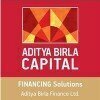Filter interviews by
Autotrac Finance Interview Questions and Answers
Be the first one to contribute and help others!
Interview questions from similar companies

I was interviewed in Jan 2025.
(2 Questions)
- Q1. Tell about your experience
- Ans.
I have 5 years of experience in risk management, including analyzing data, identifying potential risks, and implementing strategies to mitigate them.
5 years of experience in risk management
Proficient in analyzing data to identify potential risks
Implemented strategies to mitigate risks
Strong understanding of risk assessment techniques
Experience in developing risk management policies and procedures
- Q2. JD questions
(2 Questions)
- Q1. Can you work under pressure and night shifts
- Ans.
Yes, I have experience working under pressure and night shifts.
I have previous experience working in high-pressure environments where quick decision-making was required.
I am able to stay focused and maintain productivity during night shifts.
I have a flexible schedule and am willing to work night shifts as needed.
- Q2. Tell me about yourself and tell me about your exp how you can contribute
- Ans.
I am a detail-oriented risk management analyst with 5 years of experience in identifying and mitigating potential risks.
I have a strong background in conducting risk assessments and developing risk management strategies.
I am proficient in using data analysis tools to identify trends and patterns that could indicate potential risks.
I have experience working closely with cross-functional teams to implement risk mitigatio...

Software Engineer2 Interview Questions & Answers
JPMorgan Chase & Co.posted on 13 Jan 2025
I applied via Company Website and was interviewed in Dec 2024. There were 2 interview rounds.
(5 Questions)
- Q1. Introduce yourself
- Q2. What has been your experience with framework design and implementation?
- Q3. What is the tech and languages you are comfortable with? Rate yourself on each.
- Q4. What is your experience with finance?
- Q5. What is TDD and BDD? What are the differences and which one do you prefer?
(6 Questions)
- Q1. Write a program to find the frequency of word in a sentence
- Q2. Write a program to check if the sum of digits of.the given number is a prime number
- Q3. Write an SQL query to get the second highest salary in the table
- Q4. What is the difference between abstract class and interface? Give a use case for both.
- Q5. Explain static and give it's use case.
- Q6. Where are objects stored in memory?
Interview Preparation Tips

Data Analyst Interview Questions & Answers
Motilal Oswal Financial Servicesposted on 10 Jan 2025
I applied via Naukri.com and was interviewed in Dec 2024. There was 1 interview round.
(2 Questions)
- Q1. Interview was taken in malad on interface 7 building The relationship officer Vaibhav Panchal . He assigned Interviewer the way he was talking he was not able to speak in english half of the question i was...
- Q2. His english was poor How you will get the customer count who speak in english? he didn't gave me which table to fetch from ? * question changed get the customer from one table and count from the other ...
Interview Preparation Tips

I applied via LinkedIn and was interviewed in Dec 2024. There was 1 interview round.
(6 Questions)
- Q1. Explain your last project and your role in this project
- Ans.
Led a team in implementing a new CRM system for a large retail company
Managed project timeline and deliverables
Collaborated with stakeholders to gather requirements
Provided training and support to end users
Ensured successful implementation and user adoption
Improved customer data management and analytics
- Q2. Overall working experience with other companies
- Ans.
I have over 10 years of experience working with various companies in consulting roles.
Managed client relationships and delivered successful projects on time and within budget
Led cross-functional teams to drive business growth and improve operational efficiency
Developed and implemented strategic plans to address client needs and achieve objectives
- Q3. Why choose kafka over MQ ? what challenges you faced during kafka implementation ?
- Ans.
Kafka is chosen for its scalability and fault tolerance compared to MQ.
Kafka offers higher throughput and lower latency compared to MQ.
Kafka is horizontally scalable, allowing for easy expansion as data volume grows.
Kafka provides fault tolerance through replication of data across multiple brokers.
Challenges faced during Kafka implementation may include setting up proper configurations, ensuring data consistency, and m...
- Q4. Monolith to microservice migration journey ? what all decisions needs to be taken and how the entire migration took place.
- Ans.
Monolith to microservice migration involves breaking down a large application into smaller, independent services.
Evaluate the current monolith architecture and identify the components that can be decoupled into microservices.
Define the boundaries of each microservice to ensure they are cohesive and loosely coupled.
Choose the right technology stack for each microservice based on its requirements and scalability needs.
Im...
- Q5. If worked for RestAPI ? what is the use of swagger ? what is the content of Swagger documentation ?
- Ans.
Swagger is a tool used for documenting and testing REST APIs.
Swagger is used for documenting REST APIs by providing a user-friendly interface to view and interact with API endpoints.
It allows developers to easily understand the functionality of an API, including available endpoints, request/response formats, and authentication methods.
Swagger documentation typically includes information such as API endpoints, request p...
- Q6. Only this was asked to me , and rejected
Interview Preparation Tips

Relationship Manager Interview Questions & Answers
Wonder Home Financeposted on 21 Dec 2024
I applied via Referral and was interviewed in Nov 2024. There were 10 interview rounds.
(2 Questions)
- Q1. What is Home loan
- Ans.
A home loan is a sum of money borrowed from a financial institution to purchase a home or real estate property.
Home loans are typically repaid over a set period of time with interest.
The property being purchased is used as collateral for the loan.
Home loans can have fixed or variable interest rates.
Borrowers need to meet certain criteria such as credit score, income, and debt-to-income ratio to qualify for a home loan.
- Q2. Previous company working
- Ans.
I worked at XYZ Corp as a Relationship Manager for 3 years.
Managed client relationships and provided financial advice
Developed and implemented strategies to increase client retention
Collaborated with internal teams to meet client needs
Organized events and seminars to educate clients on financial products
(2 Questions)
- Q1. How many year of working experience
- Ans.
I have 5 years of working experience in relationship management.
I have worked in relationship management for 5 years.
Experience includes managing client portfolios and providing financial advice.
Successfully built and maintained relationships with high net worth clients.
Implemented strategies to increase client retention and satisfaction.
Attended training sessions and workshops to enhance skills in relationship managem
- Q2. What is Foier
- Ans.
Foier is a term used in finance to refer to a document that provides information about a company's financial status and performance.
Foier is short for 'Financial Offerings Information and Exchange Report'.
It includes details such as financial statements, key performance indicators, and market analysis.
Investors use foiers to make informed decisions about investing in a company.
Foiers are often required by regulatory bo...
(2 Questions)
- Q1. What is defrent between LTV
- Ans.
LTV stands for Loan to Value ratio, which is a financial term used in lending to assess the risk of a loan compared to the value of the asset being financed.
LTV is used in the context of loans and mortgages to determine the percentage of the loan amount compared to the appraised value of the asset.
It helps lenders assess the risk of the loan and determine the amount they are willing to lend based on the value of the co...
- Q2. What about know the wonder Home finance
(1 Question)
- Q1. Were r u staying in bangalore
- Ans.
I am staying in Koramangala, a vibrant neighborhood in Bangalore known for its cafes, restaurants, and shopping options.
Koramangala is a popular residential area in Bangalore
Known for its lively atmosphere and variety of dining options
Close to many IT companies and startup offices
Has good connectivity to other parts of the city
(1 Question)
- Q1. How to sourcing the Coustemer
- Ans.
Customer sourcing involves identifying potential customers and reaching out to them through various channels.
Utilize social media platforms to connect with potential customers
Attend networking events and industry conferences to meet new prospects
Utilize email marketing campaigns to reach out to leads
Collaborate with marketing teams to generate leads through advertising and promotions
(1 Question)
- Q1. Chola finance r u working why r u change the job
- Ans.
I am looking for new challenges and growth opportunities in my career.
Seeking new challenges and growth opportunities
Interested in expanding skill set
Exploring better career prospects
(1 Question)
- Q1. What was the technical documents
(1 Question)
- Q1. What is the approved plan
- Ans.
The approved plan is the official strategy or course of action that has been authorized for implementation.
The approved plan is typically developed based on goals and objectives set by the organization.
It may include specific tasks, timelines, and resources needed to achieve the desired outcomes.
Regular monitoring and evaluation of the approved plan are essential to ensure its effectiveness.
Examples: A marketing plan a...
(1 Question)
- Q1. How many business u can do the wonder Home finance
- Ans.
The number of business opportunities with Wonder Home Finance is limitless, depending on market demand and your networking skills.
The number of business opportunities with Wonder Home Finance can vary based on market conditions and customer needs.
You can explore various avenues such as mortgage lending, real estate partnerships, financial advisory services, etc.
Building strong relationships with clients and industry pr...
(1 Question)
- Q1. What was technical to approved land
- Ans.
Technical approval of land refers to the process of evaluating the land for compliance with technical requirements before it can be approved for development.
Technical approval involves assessing factors such as soil quality, topography, drainage, and infrastructure availability.
Engineers and surveyors may be involved in conducting assessments and providing recommendations.
The goal is to ensure that the land is suitable...
Interview Preparation Tips

I applied via Referral and was interviewed in Dec 2024. There were 2 interview rounds.
(2 Questions)
- Q1. What are derivatives in finance?
- Ans.
Derivatives in finance are financial instruments whose value is derived from the value of an underlying asset.
Derivatives can be used for hedging against risk, speculating on price movements, or gaining exposure to assets without owning them.
Common types of derivatives include options, futures, forwards, and swaps.
Options give the holder the right, but not the obligation, to buy or sell an asset at a specified price be...
- Q2. What are the different types of derivatives?
- Ans.
Derivatives are financial instruments whose value is derived from an underlying asset or group of assets.
Types of derivatives include options, futures, forwards, and swaps.
Options give the holder the right, but not the obligation, to buy or sell an asset at a specified price before or on a specified date.
Futures are contracts to buy or sell an asset at a future date for a price agreed upon today.
Forwards are similar to...
(4 Questions)
- Q1. What are the details of the stock market and its various products?
- Ans.
The stock market is a platform where investors can buy and sell shares of publicly traded companies.
Stocks represent ownership in a company and can be bought and sold on stock exchanges like NYSE and NASDAQ.
Bonds are debt securities issued by companies or governments to raise capital.
Mutual funds pool money from multiple investors to invest in a diversified portfolio of stocks, bonds, or other securities.
Options give i...
- Q2. Balance sheet,profit &loss account
- Q3. Journal entries
- Q4. Option in detail, economic crisis,
Interview Preparation Tips

I was interviewed in Nov 2024.
Here’s a simple framework to approach a case study effectively:
---
Case Study Framework
1. Understand the Problem
Read the case thoroughly and identify the key issue.
Ask clarifying questions if needed (if in a live setting).
Summarize the problem in your own words.
2. Analyze the Situation
SWOT Analysis (Strengths, Weaknesses, Opportunities, Threats)
Identify relevant stakeholders.
Gather data or key insights from the case text.
3. Identify Alternatives
Brainstorm possible solutions to the problem.
Consider multiple approaches (e.g., short-term vs. long-term solutions).
4. Evaluate the Alternatives
Weigh the pros and cons of each solution.
Assess feasibility, costs,
(2 Questions)
- Q1. What are the common performance issues that can occur in a system?
- Ans.
Common performance issues in a system include slow response times, high resource usage, bottlenecks, and crashes.
Slow response times can be caused by inefficient code, network latency, or overloaded servers.
High resource usage can lead to system slowdowns and crashes, often caused by memory leaks or inefficient algorithms.
Bottlenecks occur when a component of the system becomes a limiting factor, such as a database ser...
- Q2. What is your experience with software bug fixing?
- Ans.
I have experience in identifying and resolving software bugs through thorough testing and collaboration with developers.
Identifying bugs by reproducing issues reported by users
Collaborating with developers to understand root cause of bugs
Testing bug fixes to ensure they are effective
Utilizing bug tracking tools like Jira or Bugzilla
Experience with regression testing to prevent reoccurrence of bugs
Shortcut Tips for Coding Tests: 1. Master the Basics: Familiarize yourself with arrays, strings, loops, and conditional statements. 2. Learn Patterns: Concentrate on sliding window, two-pointer techniques, recursion, and divide-and-conquer methods. 3. Use Standard Algorithms: Study breadth-first search (BFS), depth-first search (DFS), sorting algorithms, and dynamic programming principles. 4. Understand Data Structures: Practice with stacks, queues, linked lists, and trees. 5. Practice Edge Cases: Consider scenarios involving empty inputs, duplicates, and large datasets. 6. Write Pseudocode: Outline your plan before starting to code. 7. Optimize Early: Always strive for efficiency in your solutions.
Interview Preparation Tips
1. Know Your Strengths: Identify skills and tailor your resume.
2. Network: Leverage LinkedIn, industry events, and connections.
3. Customize Applications: Align resumes and cover letters to job descriptions.
4. Prepare for Interviews: Research companies and practice answers.
5. Upskill: Learn in-demand tools, certifications, and soft skills.
6. Stay Organized: Track applications and follow-ups.
7. Be Positive: Handle rejections as learning opportunities.
8. Leverage Social Media: Optimize LinkedIn and maintain professionalism online.
9. Consider All Opportunities: Explore freelance, contract, or adjacent roles.
10. Follow Up: Send thank-you notes and stay connected with recruiters.
Stay consistent and persistent—your opportunity is ahead!

Senior Analytics Consultant Interview Questions & Answers
Wells Fargoposted on 28 Nov 2024
I applied via Company Website and was interviewed in Oct 2024. There were 2 interview rounds.
(4 Questions)
- Q1. Filters in Tableau
- Ans.
Filters in Tableau allow users to focus on specific data points within a visualization.
Filters can be applied to dimensions or measures to narrow down the data being displayed.
Users can use various types of filters such as quick filters, context filters, and data source filters.
Filters can be used to show or hide data based on specific criteria, such as date ranges or categories.
Example: Applying a filter to show only
- Q2. Blending and joins in Tableau
- Ans.
Blending and joins in Tableau allow users to combine data from multiple sources for analysis and visualization.
Blending is used when data sources have a common field but different levels of granularity.
Joins are used when data sources have a common field and the same level of granularity.
Blending creates a virtual join, while joins physically combine the data.
Examples: Blending sales data from Excel with customer data ...
- Q3. LOD expressions in Tableau
- Ans.
LOD expressions in Tableau allow you to compute values at different levels of detail in a visualization.
LOD expressions include FIXED, INCLUDE, and EXCLUDE functions
FIXED LOD expressions compute values at a specific level of detail regardless of the visualization level
INCLUDE LOD expressions compute values at the specified level of detail and include other dimensions in the visualization
EXCLUDE LOD expressions compute ...
- Q4. Different types of Joins in SQL, difference between TRUNCATE and DELETE
- Ans.
Different types of joins in SQL include INNER JOIN, LEFT JOIN, RIGHT JOIN, and FULL JOIN. TRUNCATE is faster than DELETE as it removes all rows at once.
Types of joins: INNER JOIN, LEFT JOIN, RIGHT JOIN, FULL JOIN
TRUNCATE: removes all rows from a table without logging individual row deletions
DELETE: removes specific rows from a table and logs each row deletion
TRUNCATE is faster than DELETE as it does not log individual
(2 Questions)
- Q1. About my technical experience
- Q2. What will you do if you get the offer from multiple companies
Interview Preparation Tips
After the second round, I did not receive any feedback for several days, so I contacted HR to inquire about the status. They assured me they would provide an update, but I did not hear back. I reached out again and was told that I was not selected because I was "not technically strong." This reason seemed misleading, as the second round was not even technical in nature.
My impression is that my current salary expectations may have exceeded their budget for the role. Rather than acknowledging this, it seems they opted to cite a technical deficiency as the reason for my rejection, which I believe was not accurate.
Skills evaluated in this interview

I applied via Company Website and was interviewed in Dec 2024. There was 1 interview round.
(6 Questions)
- Q1. Walk me thru your CV
- Q2. Technical questions from Job description
- Q3. Why switching your job?
- Q4. Behavioral Questions
- Q5. Projects and accomplishments
- Q6. How do you align with the role?

I applied via Job Portal and was interviewed in Nov 2024. There were 2 interview rounds.
During the coding test, I was asked to write a program to check the frequency of characters in a string.
(5 Questions)
- Q1. What is Java , what are the four pillars of java
- Ans.
Java is a popular programming language known for its platform independence and object-oriented approach.
Java is platform-independent, meaning it can run on any device with a Java Virtual Machine (JVM)
Object-oriented programming is a key feature of Java, allowing for code reusability and modularity
The four pillars of Java are: Inheritance, Encapsulation, Abstraction, and Polymorphism
Inheritance allows a class to inherit...
- Q2. Related to collection framework
- Q3. What is recursion, write a code for it
- Ans.
Recursion is a programming technique where a function calls itself to solve a problem.
Recursion involves breaking down a problem into smaller subproblems and solving them recursively.
A base case is needed to stop the recursion and prevent infinite loops.
Example: Factorial calculation using recursion - function factorial(n) { return n === 0 ? 1 : n * factorial(n-1); }
- Q4. Why we don't use pointers in java
- Ans.
Java doesn't use pointers for security and simplicity reasons.
Java uses references instead of pointers to avoid direct memory manipulation.
Pointers can lead to memory leaks and security vulnerabilities.
Java's garbage collection manages memory automatically, reducing the need for pointers.
- Q5. What are the difference between array and arraylist
- Ans.
Array is a fixed-size data structure while ArrayList is a dynamic-size data structure in Java.
Array is a fixed-size collection of elements of the same data type, while ArrayList is a dynamic-size collection that can grow or shrink.
Arrays can store primitive data types and objects, while ArrayList can only store objects.
Arrays require a specified size at the time of declaration, while ArrayList can dynamically resize it...
Interview Preparation Tips
Tell us how to improve this page.
Interview Questions for Popular Designations
Autotrac Finance Interview Process
based on 1 interview
Interview experience
Interview Questions from Similar Companies
Autotrac Finance Reviews and Ratings
based on 13 reviews
Rating in categories
|
Territory Executive
6
salaries
| ₹3.1 L/yr - ₹3.3 L/yr |
|
Senior Executive
5
salaries
| ₹3.4 L/yr - ₹4.1 L/yr |
|
Credit Manager
5
salaries
| ₹6.9 L/yr - ₹17.4 L/yr |
|
State Head
5
salaries
| ₹14 L/yr - ₹15.5 L/yr |
|
Chief Operating Officer
5
salaries
| ₹80 L/yr - ₹99 L/yr |

Shriram Finance

Mahindra Finance

Cholamandalam Investment & Finance

Bajaj Finance
- Home >
- Interviews >
- Autotrac Finance Interview Questions










